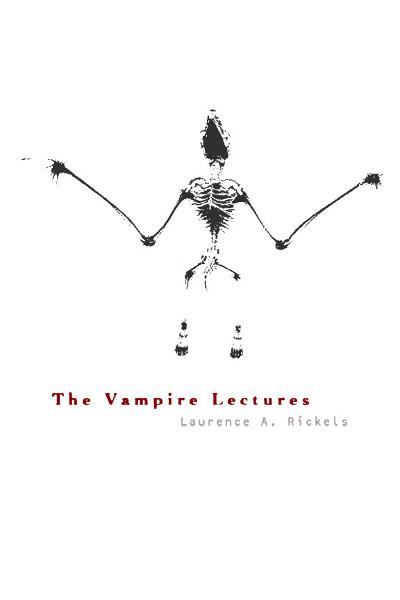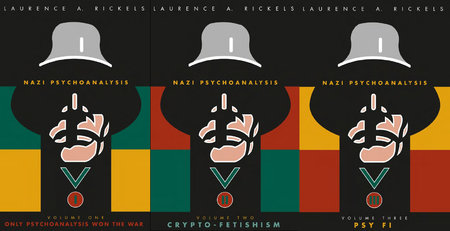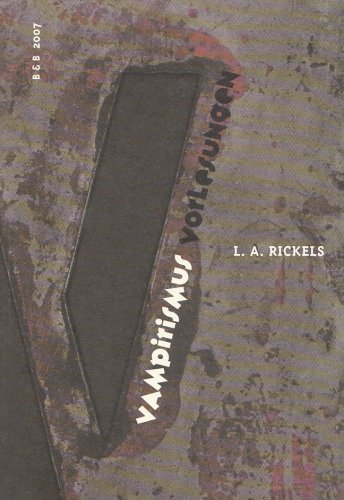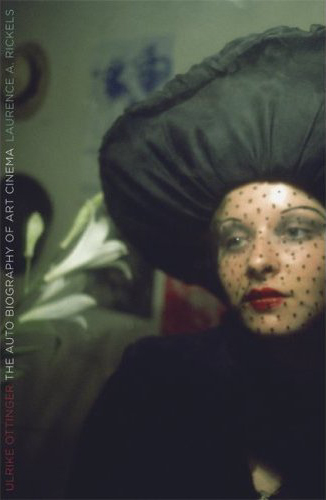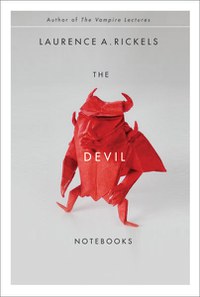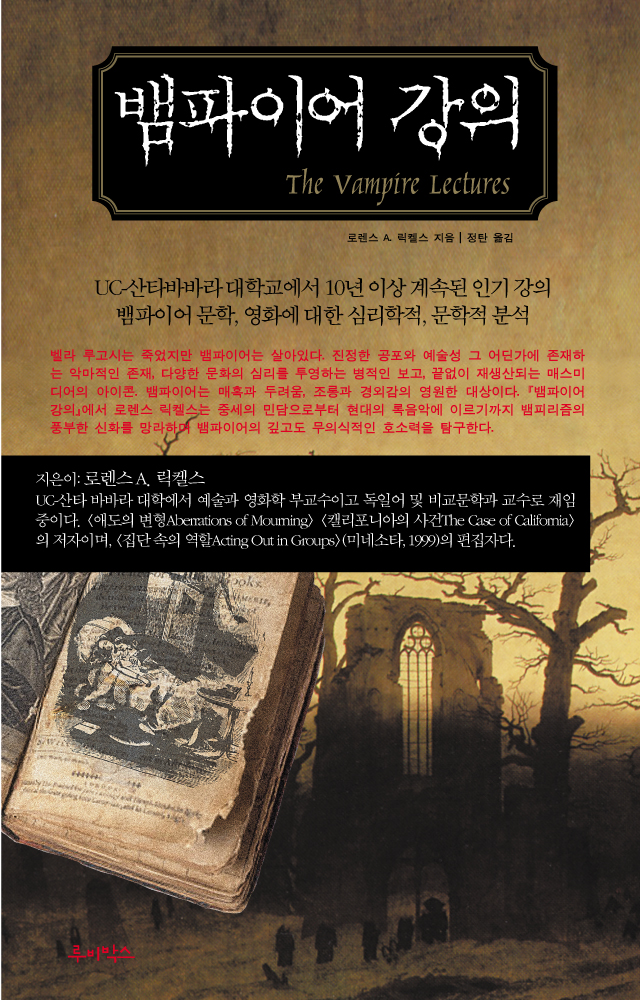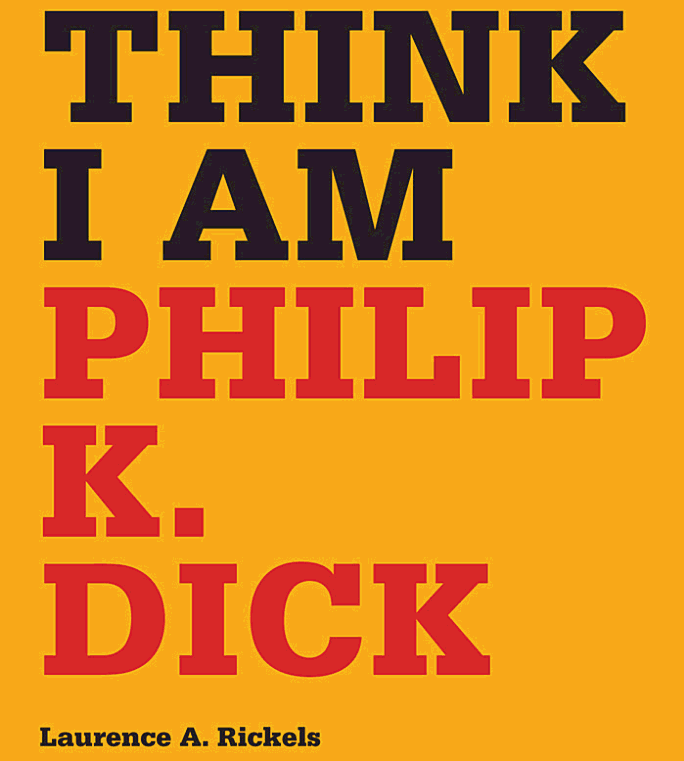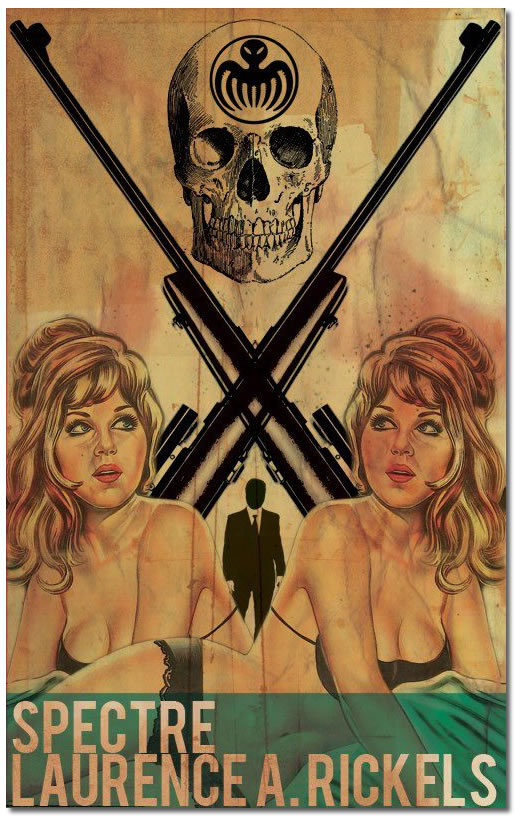Publications
In Aberrations of Mourning, Laurence A. Rickels explores a phantasmic Geistesgeschichte not addressed within the traditional framework of theories and histories that tend to emphasize Oedipal structures. As such, this study involves a reconsideration of certain basic tenets which inform the reading of literature, philosophy, and, indeed, psychoanalysis itself. Its main focus, however, is to suggest an interpretation of both reading and writing that goes beyond notions of patricidal writing that have received so much currency in the past few years.
In nine chapters, Rickels investigates literary texts and their aesthetic and semiotic theories to determine the breakdown of mourning throughout each name-bearing corpus. Since psychoanalytic hermeneutics, which remains inseparable from Freud's works, is the only context available for consideration of the place of aberrant mourning in a corpus, Rickels invokes this critical perspective at crucial junctures in his study. He is thereby able to delineate the precise contours, implications, and exclusions that the concept of mourning seeks to attain in Freudian psychoanalysis and in more recent psychoanalytic theory.
The problem of aberrant mourning, which has only begun to assert itself, demands further explication and illustration, and it is to this end that Aberrations of Mourning is offered. The authors Rickels analyzes were either part of Nietzsche's own select reading list or were themselves readers and, in a sense, writers of "Nietzsche." Rickels thus recasts a particular tradition in German letters, and poses the problem of aberrant mourning as a Nietzschean challenge to and within the Freudian system.
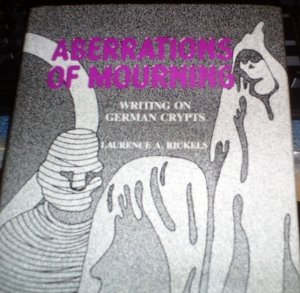
(Detroit: Wayne State University Press, 1988)
Der "unbetrauerbare Tod": Der Verstorbene wird dem trauernden Körper einverleibt als unverdauter oder unbegrabener Leichnam, der wiederum das psychische Funktionieren des Überlebenden stört oder steuert. In Rickels kühner Herleitung finden die psychischen Störungen, die die fortdauernde Anwesenheit des Toten hervorruft, ihren Ausdruck als Schreiben auf den Krypten, welche gleichzeitig die Phantome übertragen. Damit entwickelt Rickels eine psychoanalytische Theorie des Spuks, die zugleich eine theoretische Abhandlung über Aufkommen und Wirkung der technischen Medien – von Druckerpresse und Photographie bis zu Telefon und Fernsehen – darstellt.
Rickels belegt seine Hypothese mit eindringlichen Interpretationen von Werken Kellers, Freuds, Shelleys, Stokers, Artauds und Kafkas. Obgleich er im Rahmen der Psychoanalyse bleibt, zeigt er doch, dass die mit der Beseitigung der Toten verbundenen Probleme sich nicht immer durch die Übersetzung in ödipale Ängste lösen lassen. In seinen Untersuchungen weist Rickels der Biographie erneuert ihren legitimen Platz in der Literaturwissenschaft, aus der Formalismus und Strukturalismus sie lange verbannt hatten
.
(Vienna: Edition Passagen, 1989)
A cult classic that explores the concept of "California"-now back in print!
Focusing on the changing image of the West Coast through such varied social and cultural artifacts as bodybuilding, group therapy, suicide cults, milk-carton images of missing children, teenage slang, and surf music, Laurence Rickels offers a dizzying psychohistory of the twentieth century as crystallized in the symbolic configuration called California and considered in relation to German modernism, national socialism, and Freudian psychoanalysis.
"Rickels has written an important book reading psychoanalyis at the end of our century. His intent is to complete Adorno's refiguring of Mickey Mouse into his own Rickelian refiguration of Freud's project." Sander L. Gilman
"Laurence Rickels is one of the few theorists today who is able to think technology through psychoanalysis and vice versa . . . .With California as the site of this encounter, Rickels takes Freud to the beach and California to the couch, picking up, in many ways, where the Frankfurt School left off." Artforum
"Provocative (and often hilarious), The Case of California explores the 'bi-coastal logic of modernity,' with California as one coast and Germany as the other. . . . Startling and brilliant." San Francisco Bay Guardian
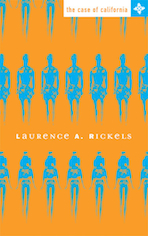
(Baltimore: The Johns Hopkins University Press, 1991) *Reprinted with University of Minnesota Press, 2001.
